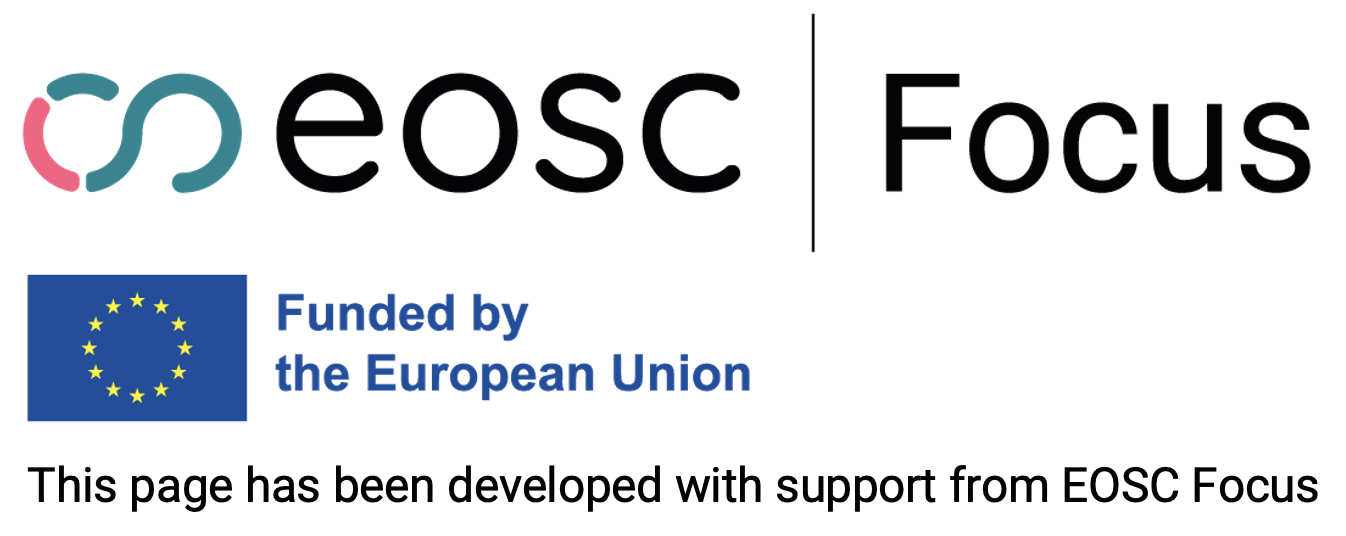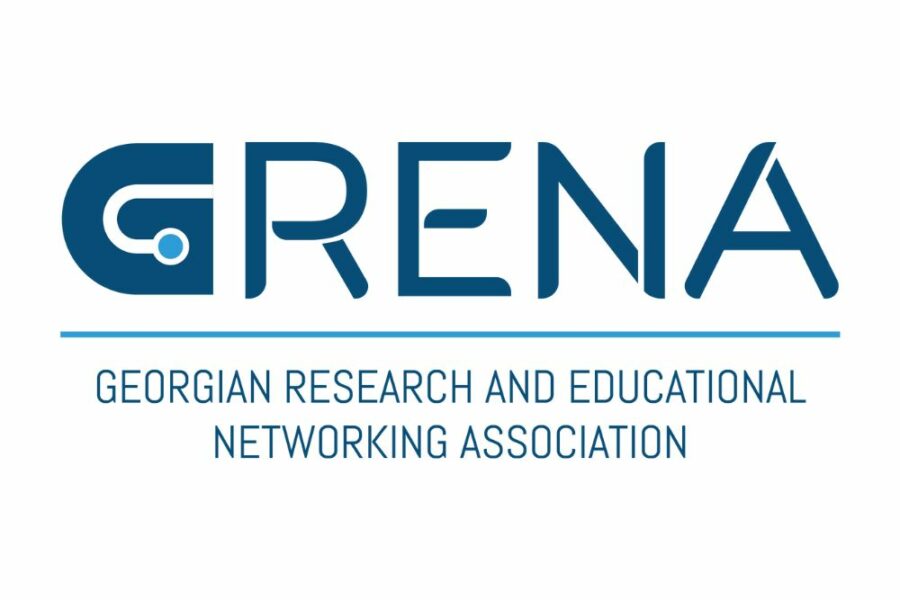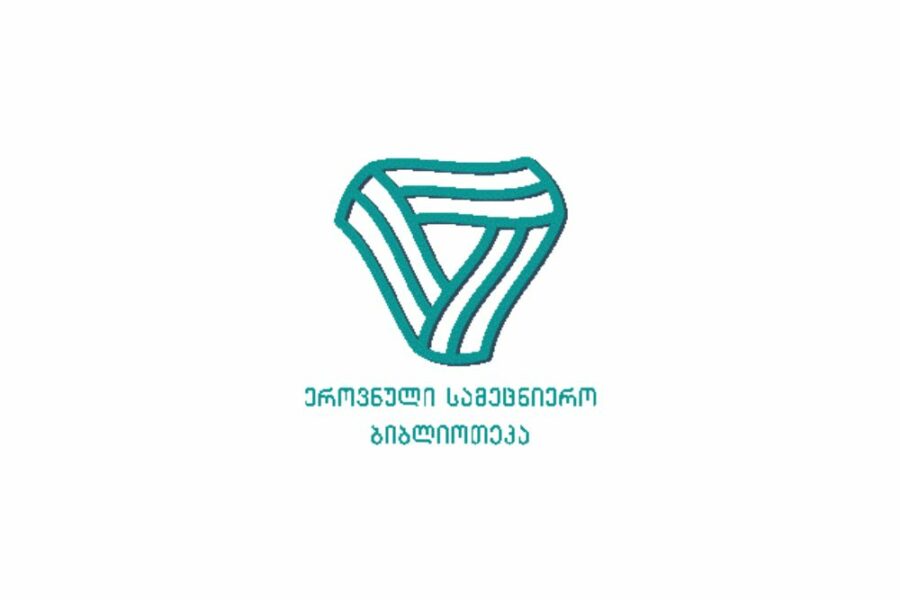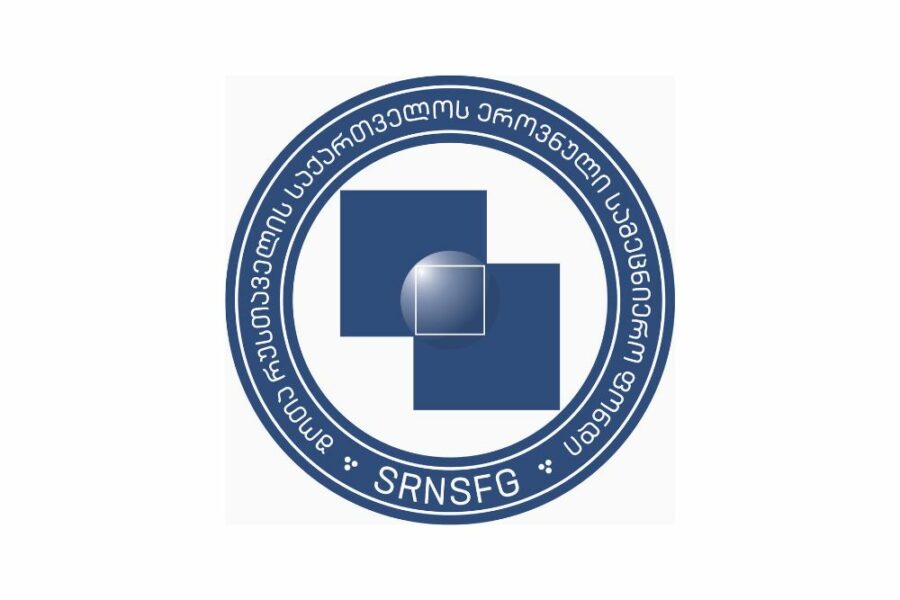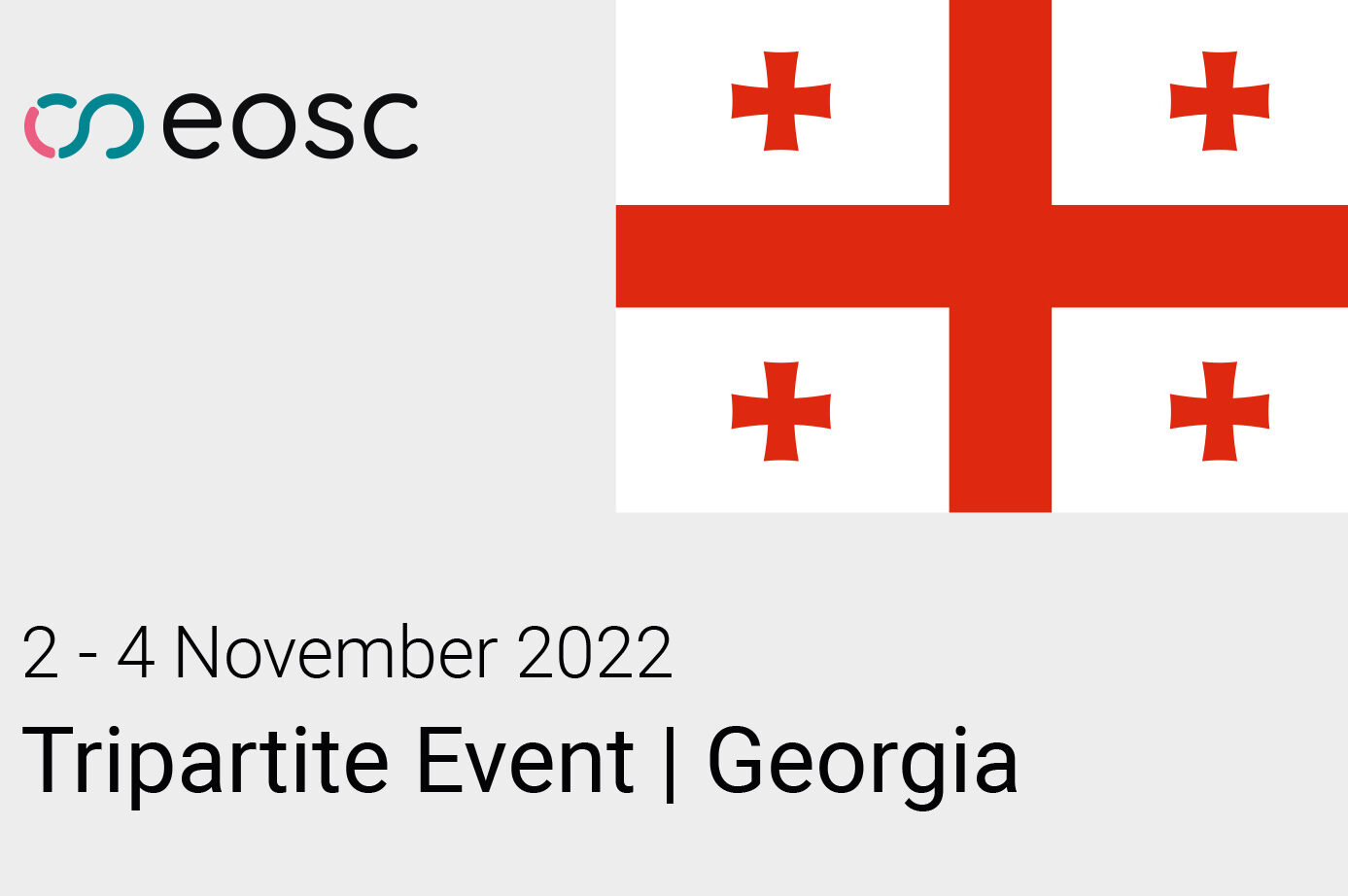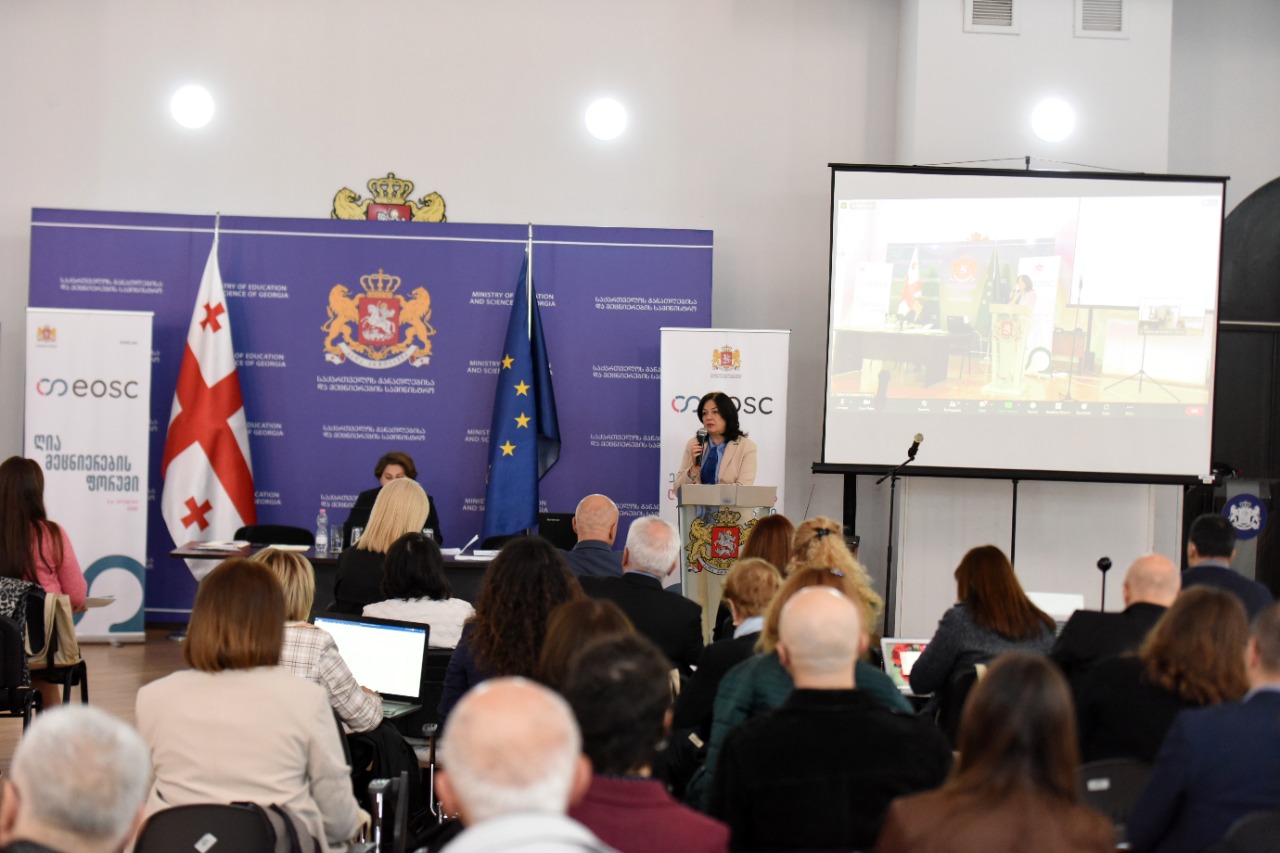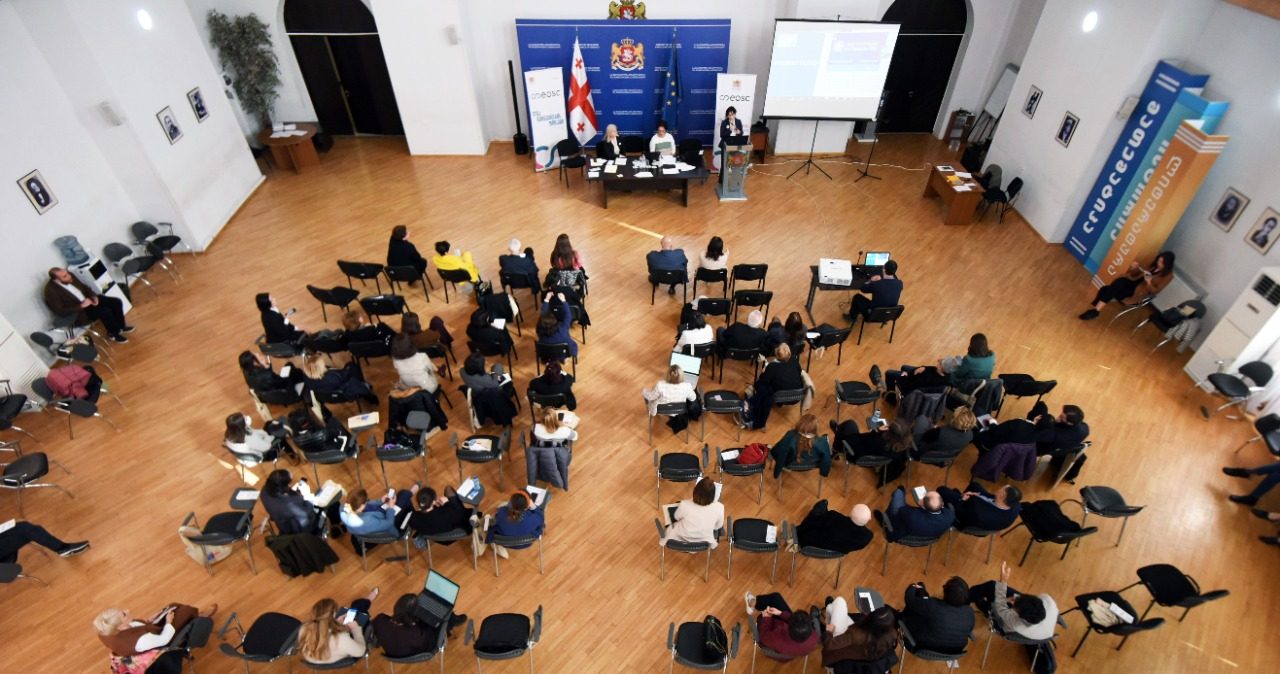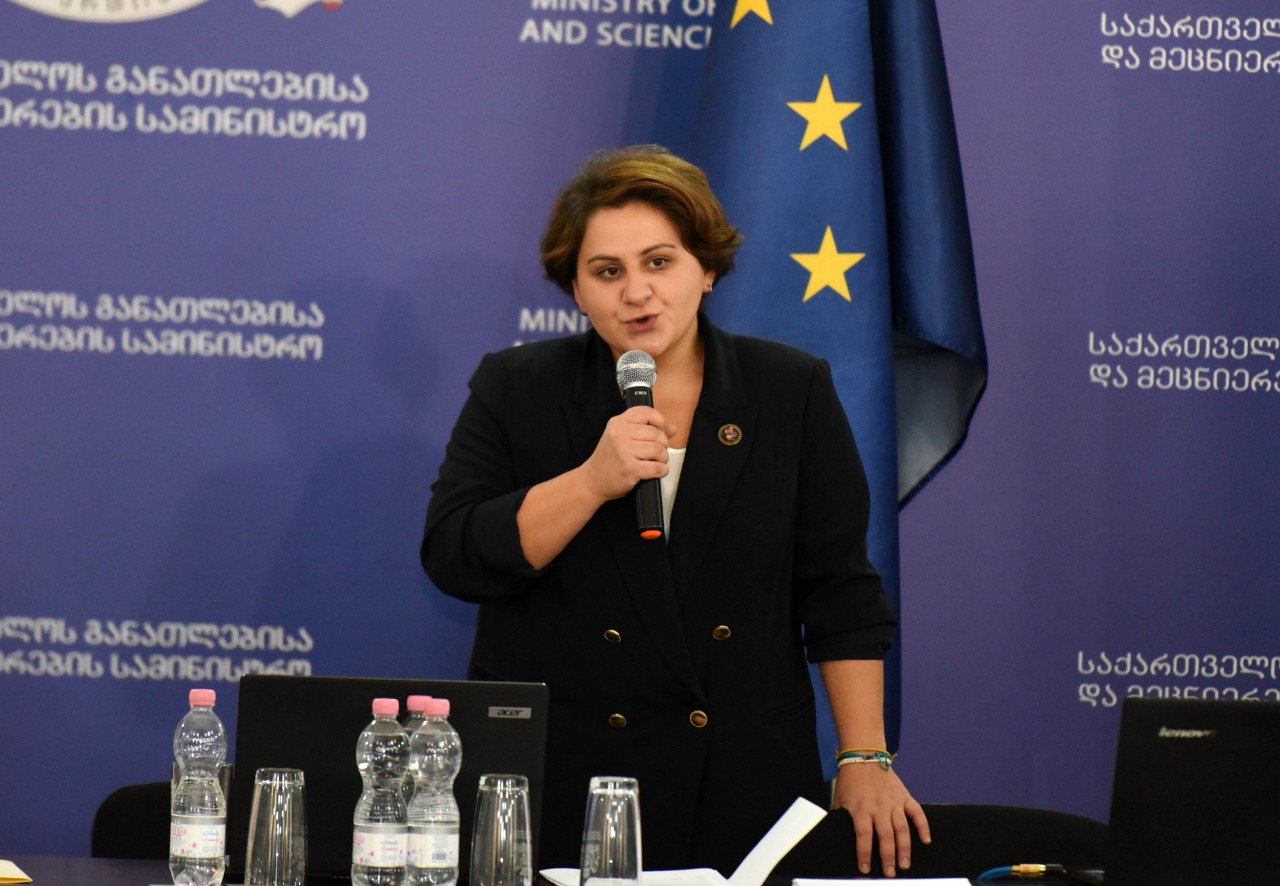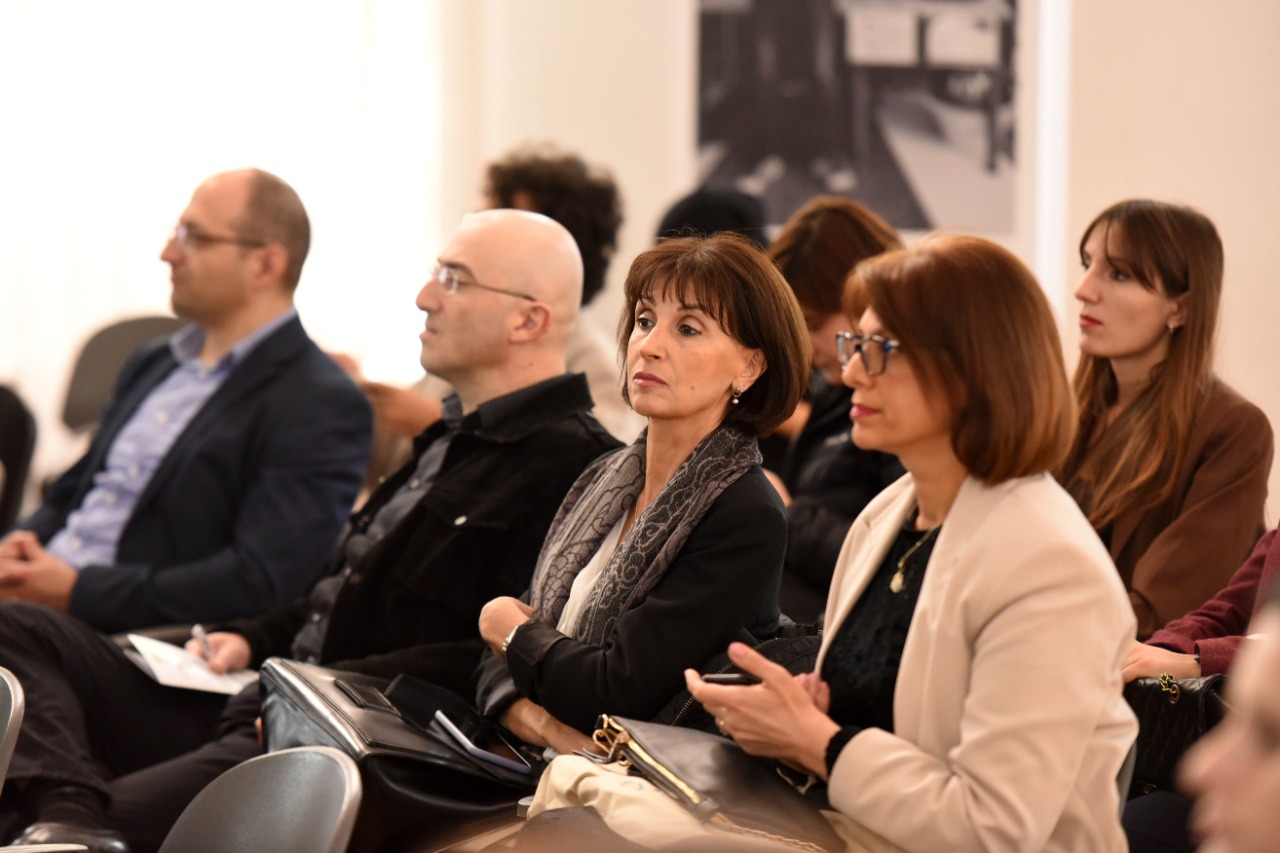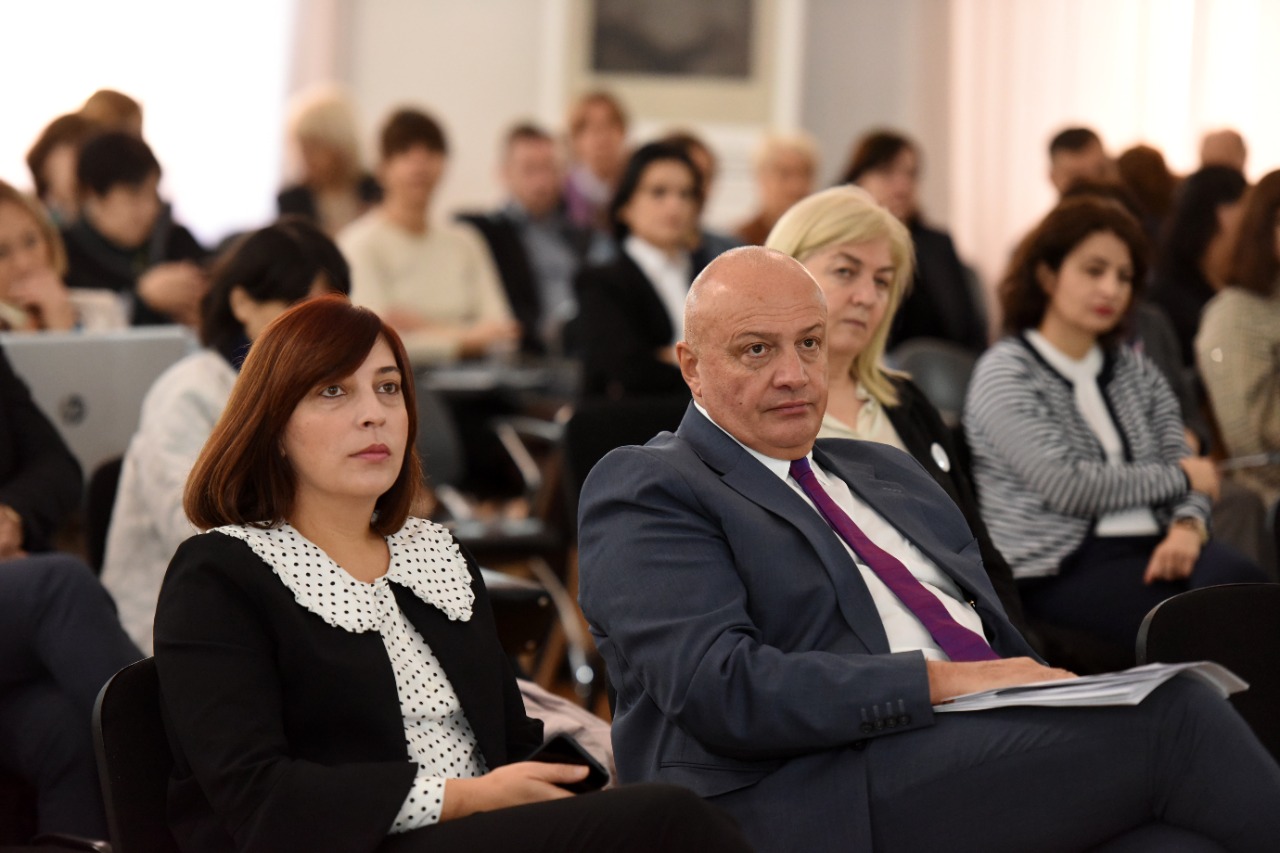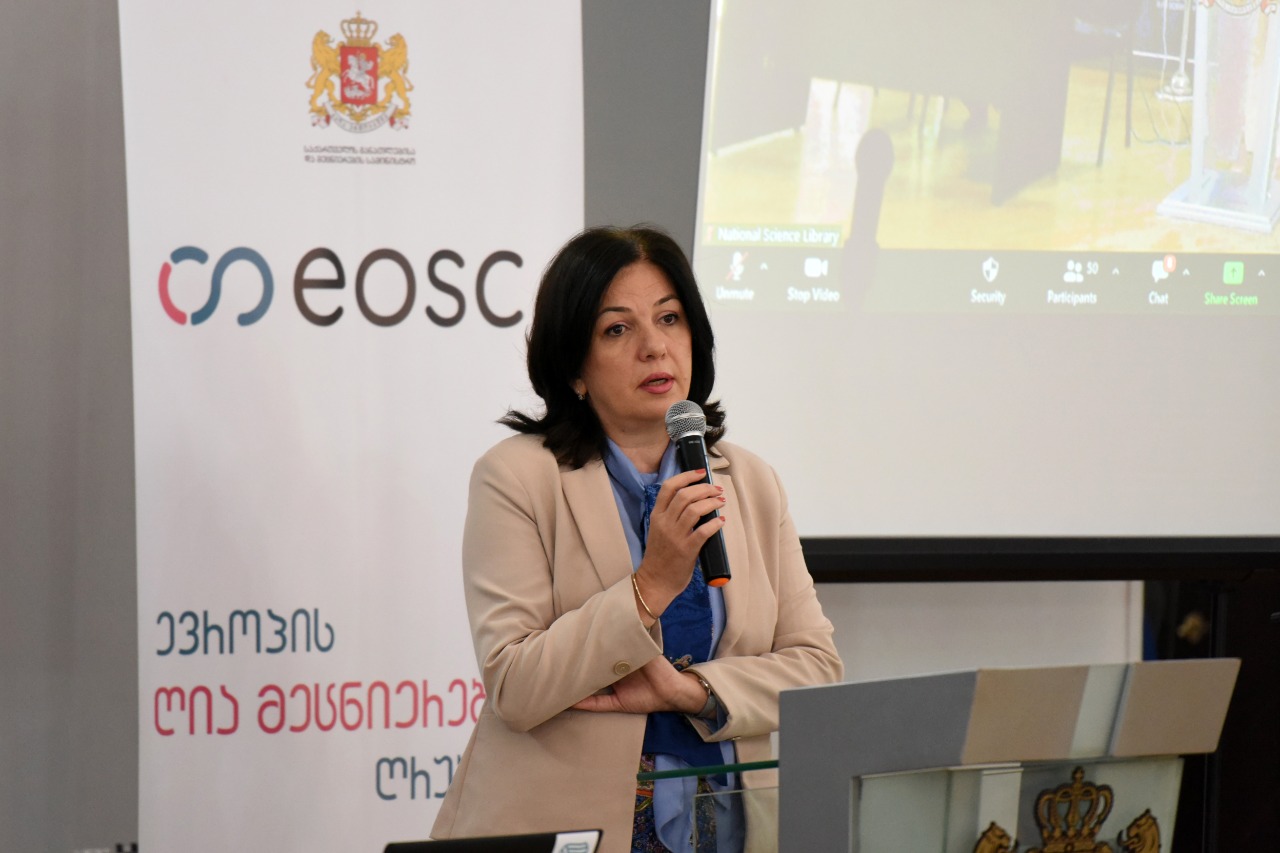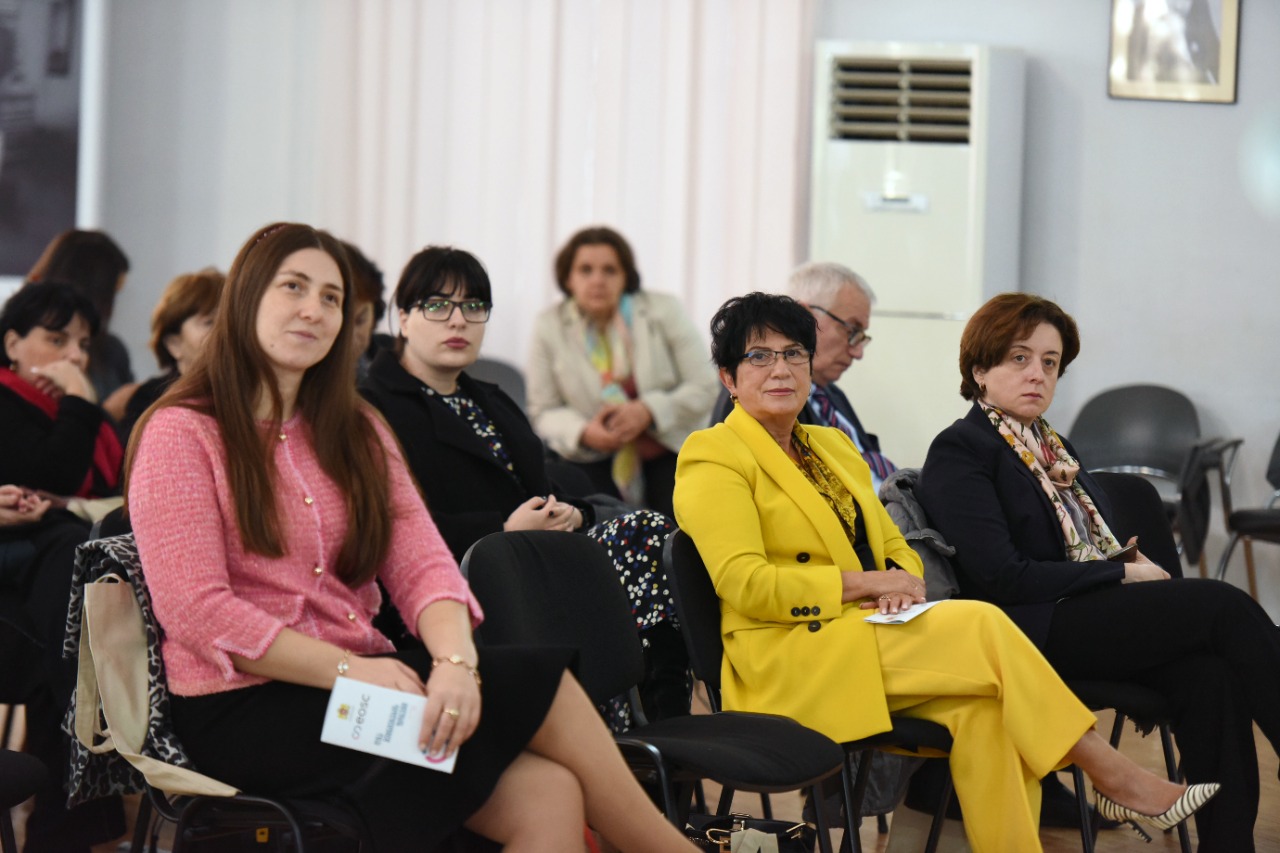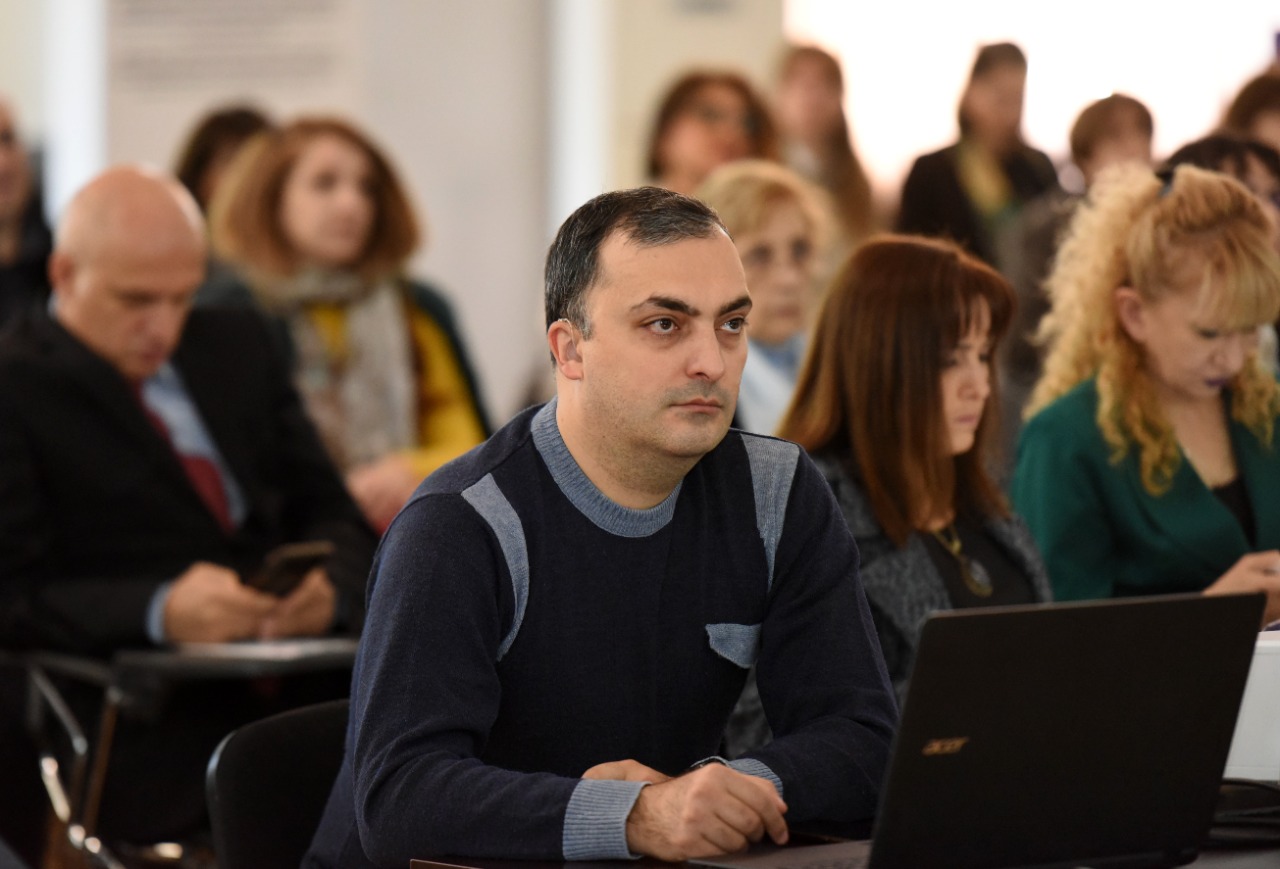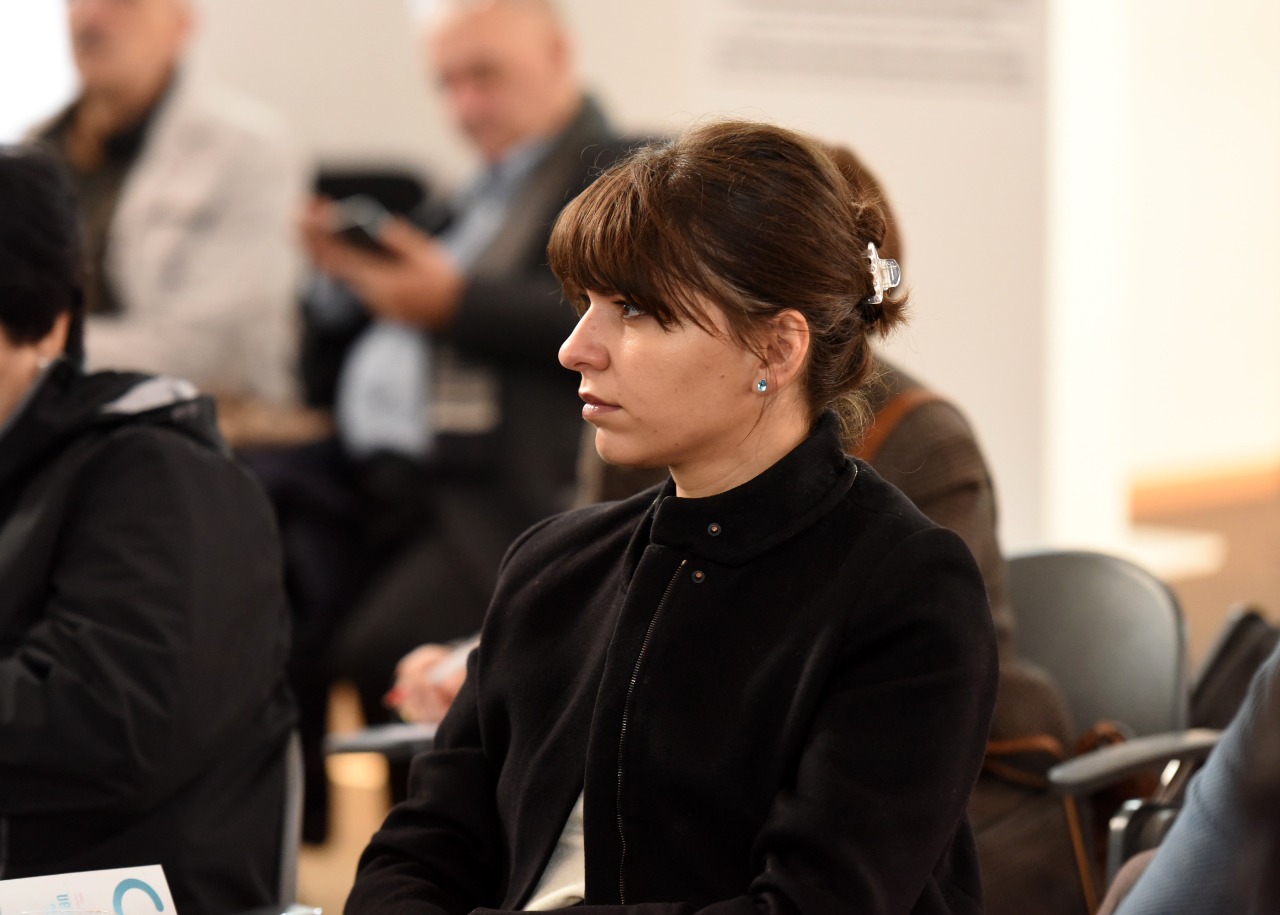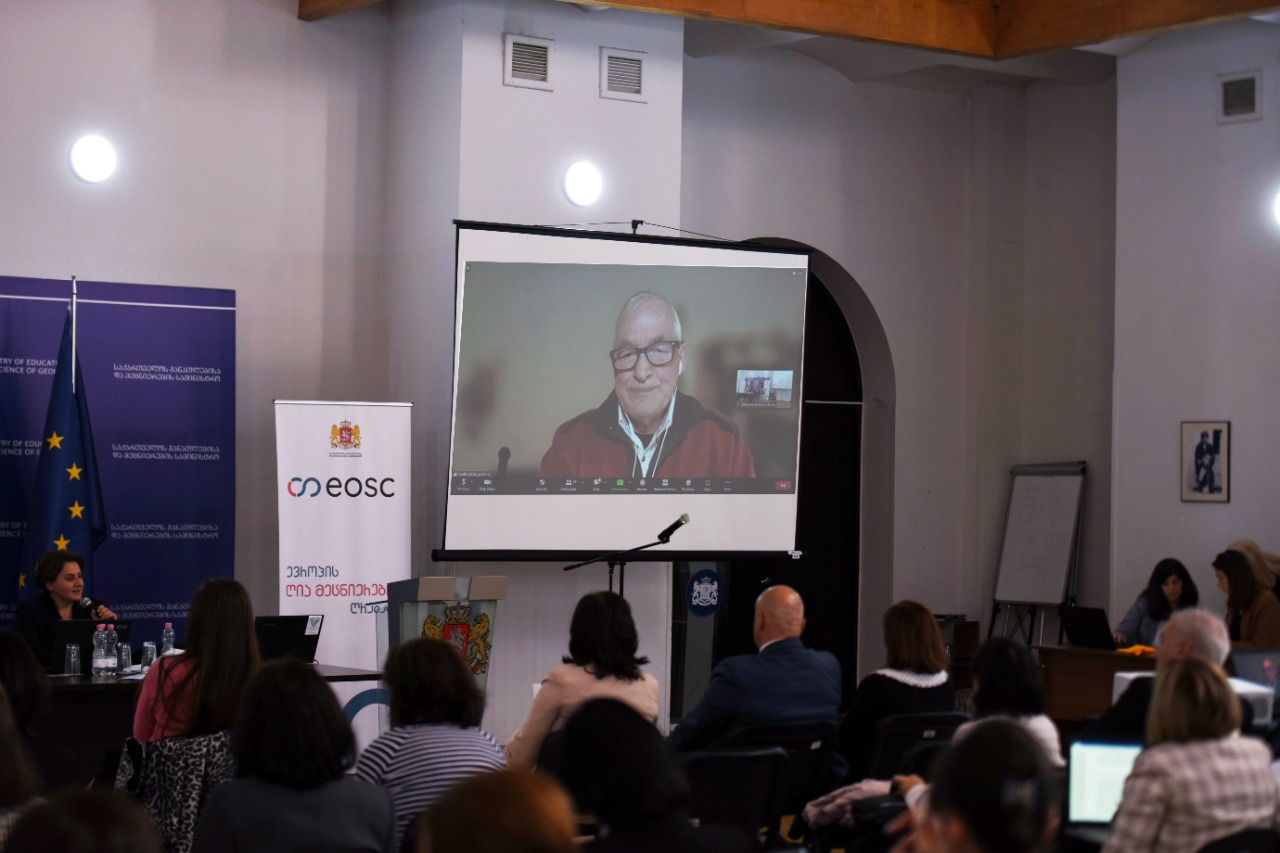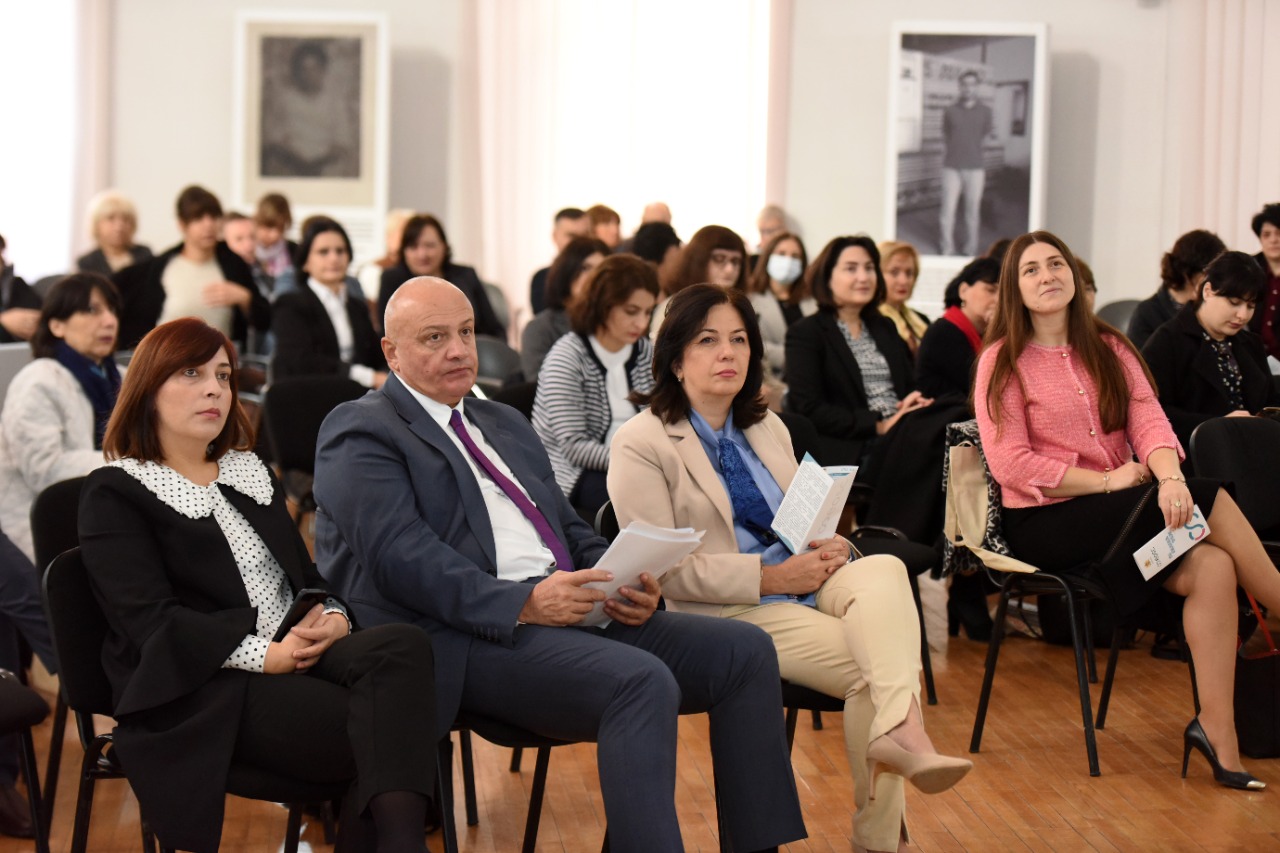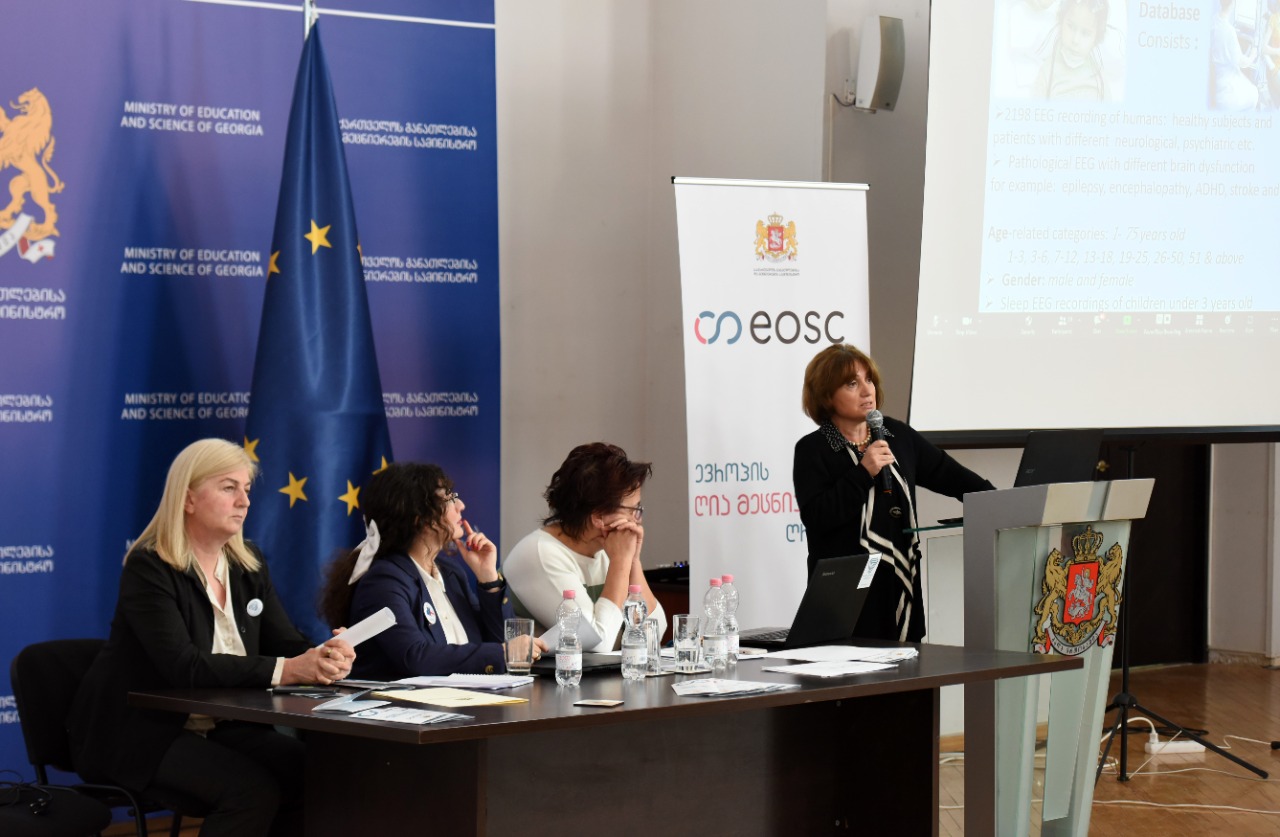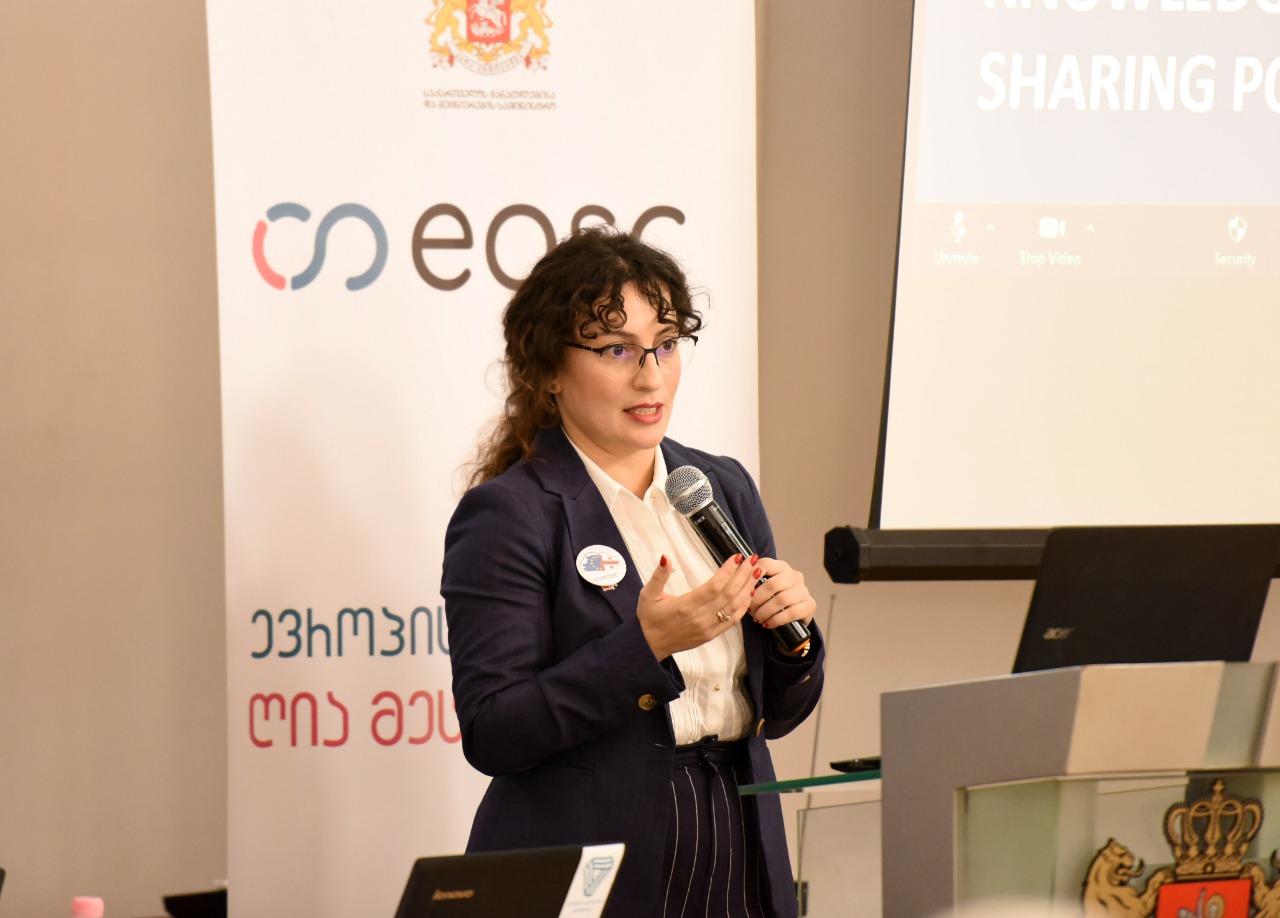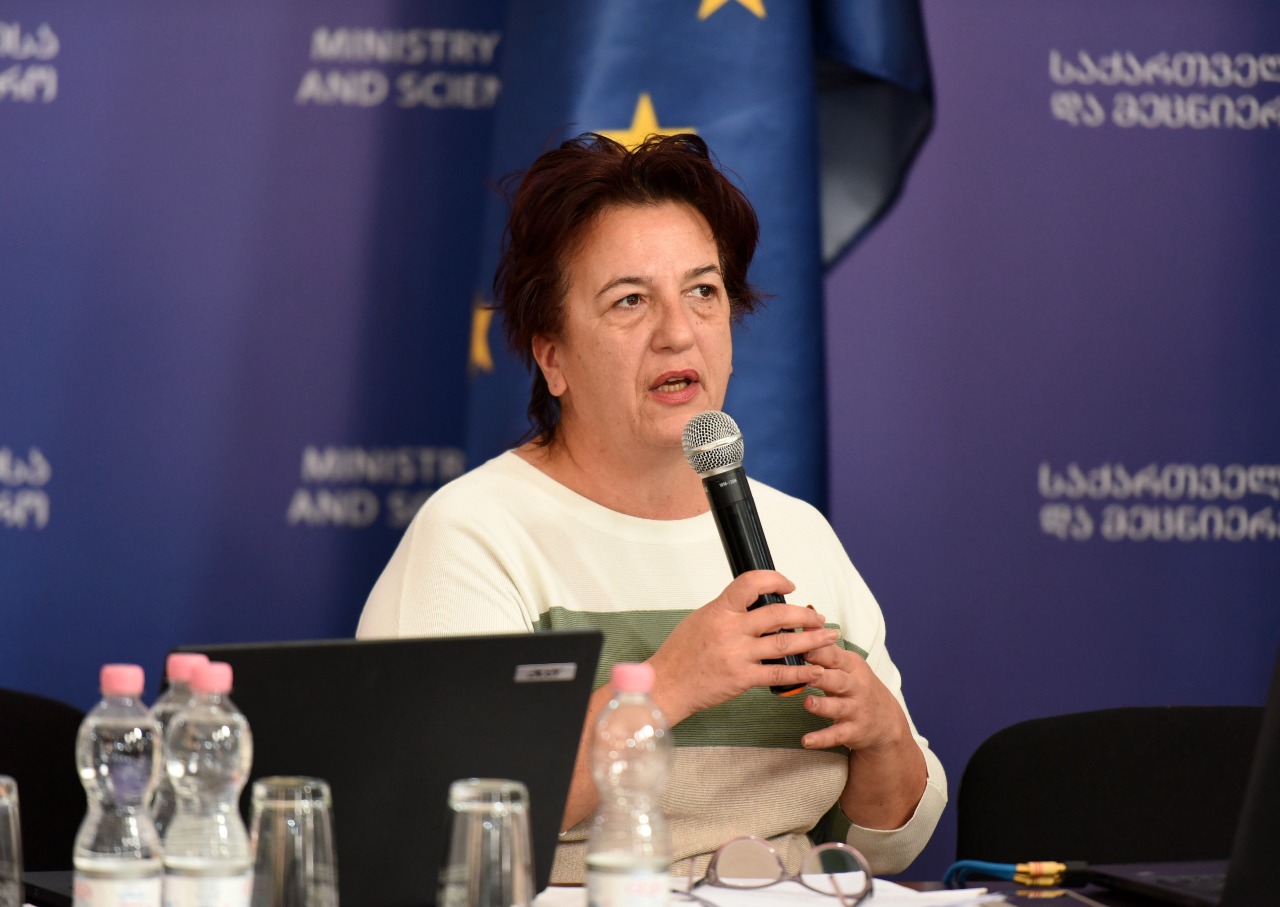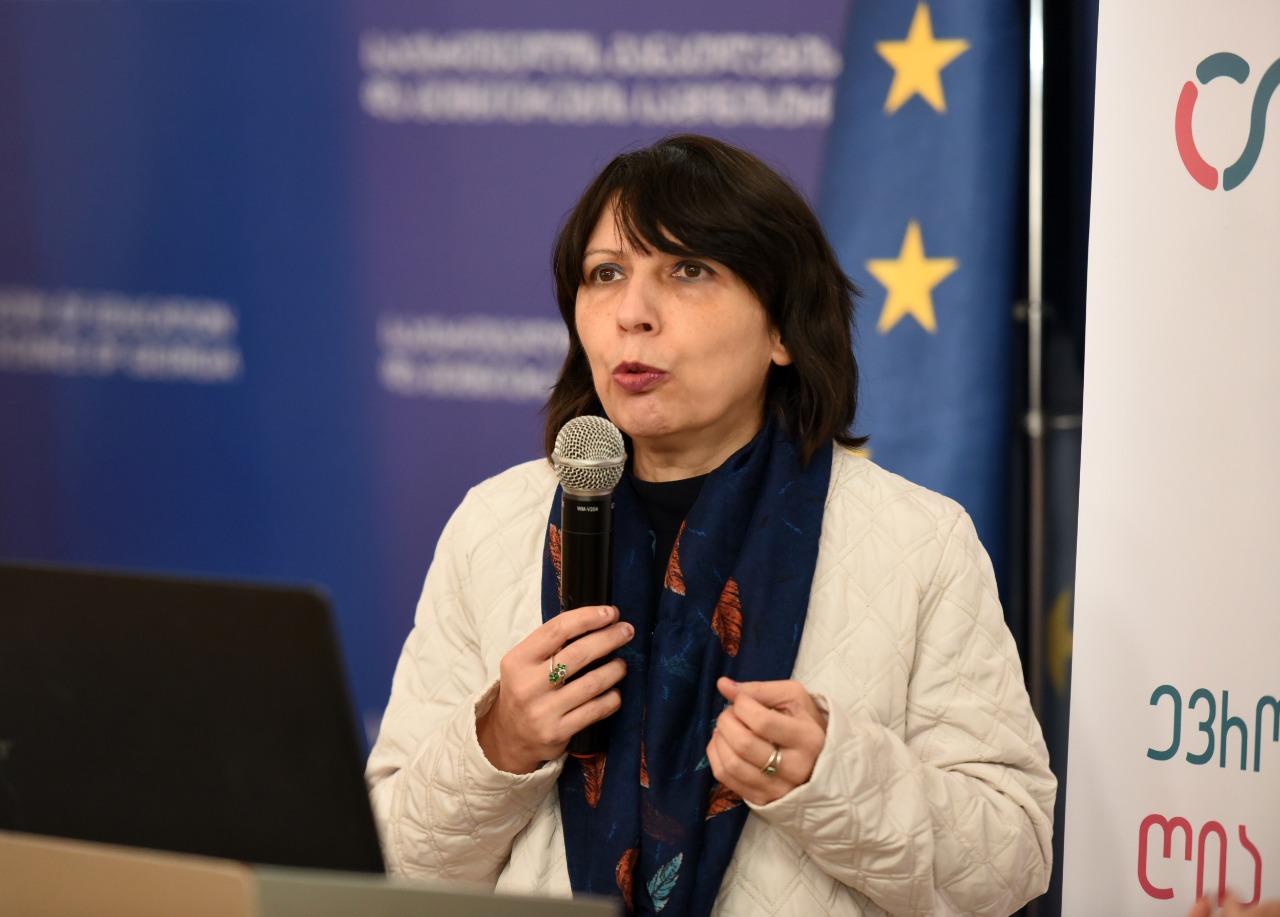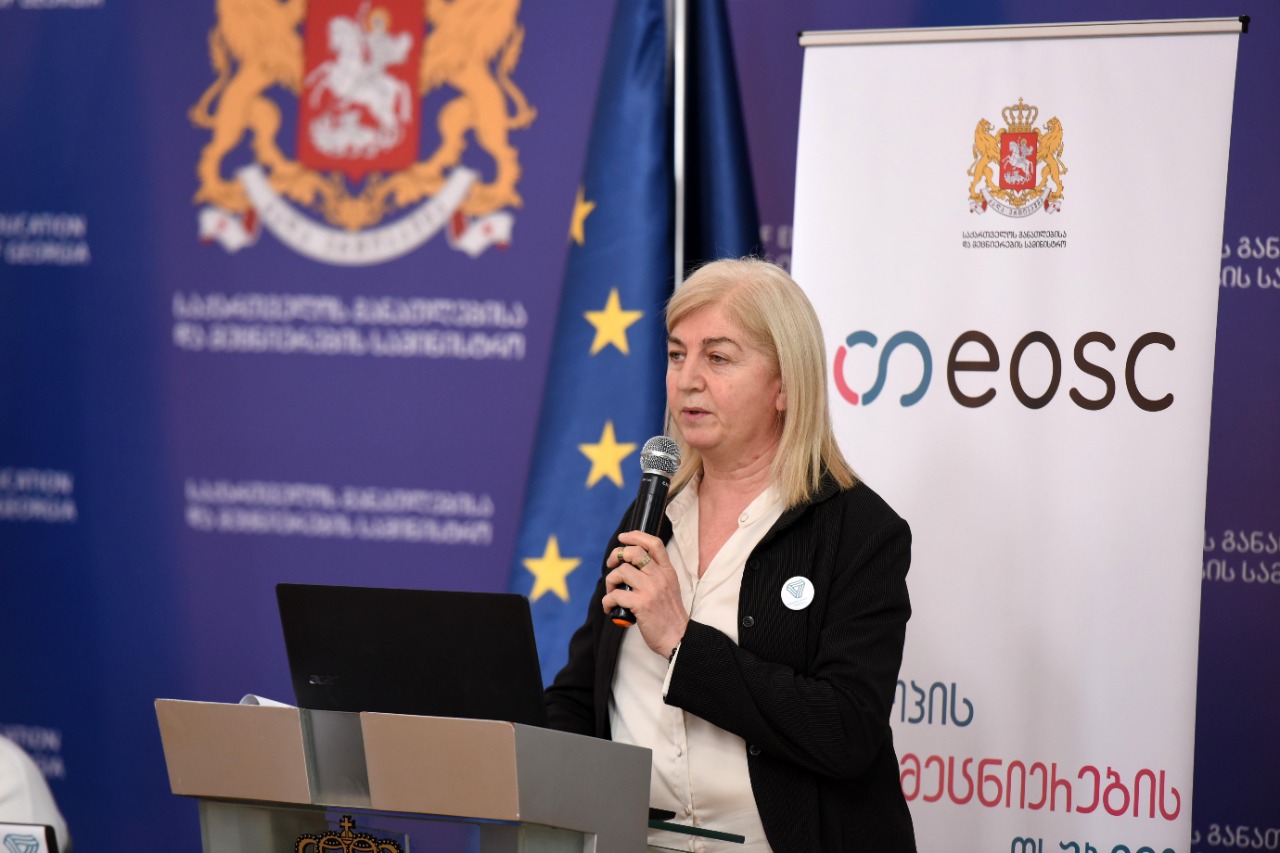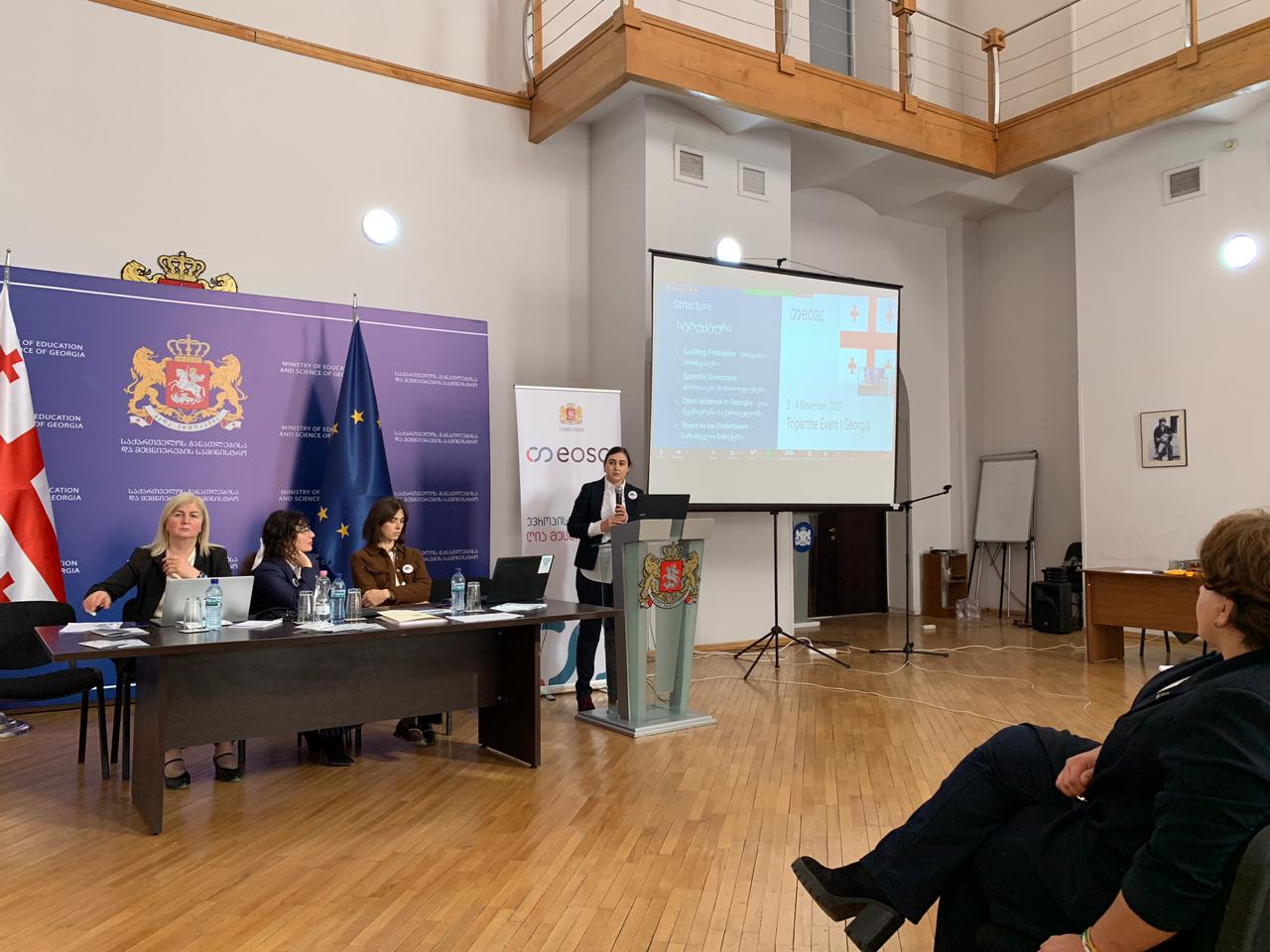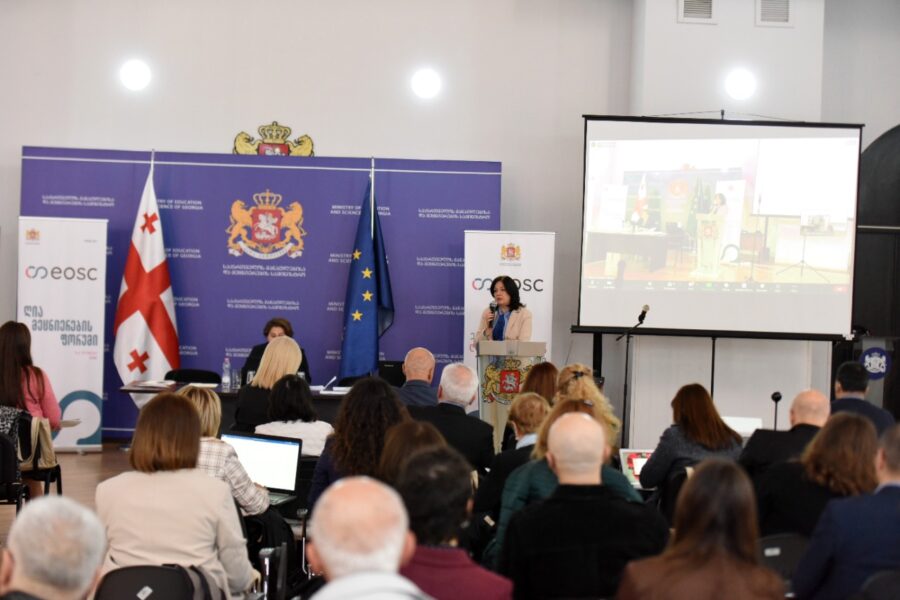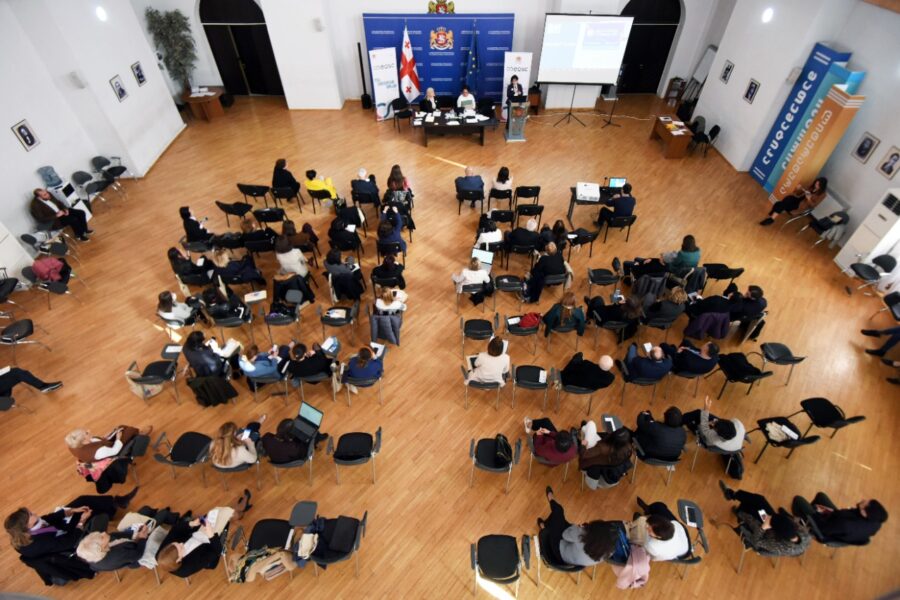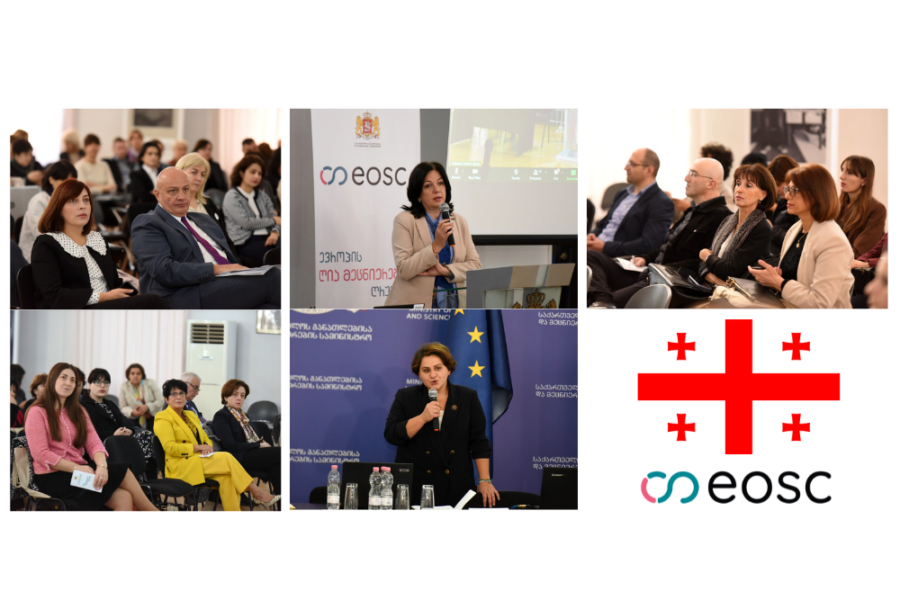
Georgia
Overview
European Commission
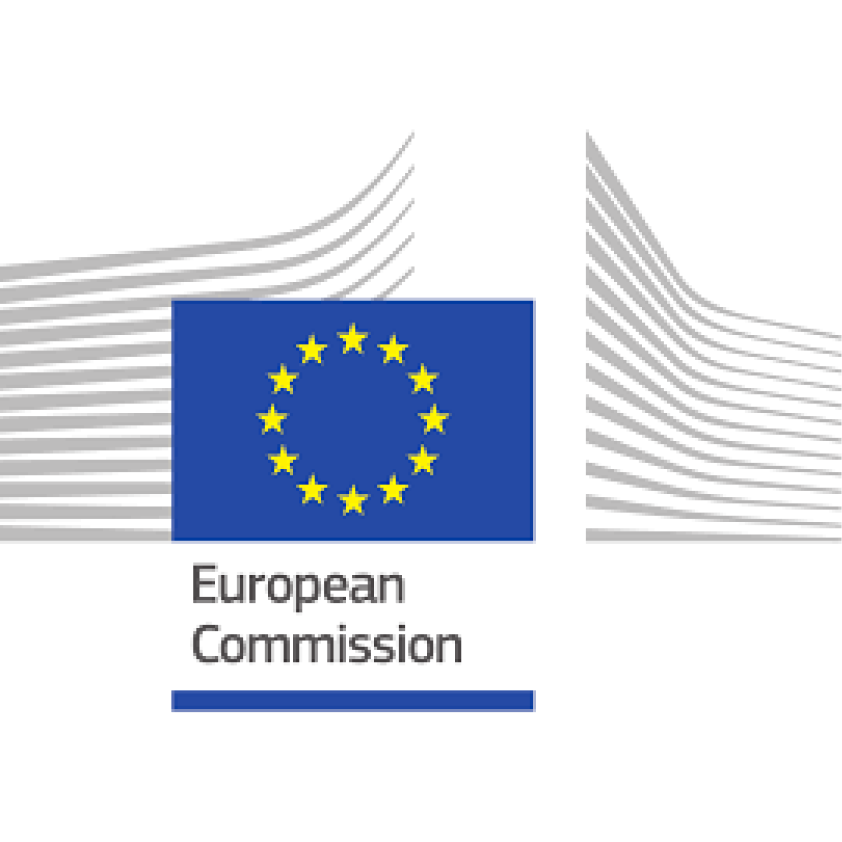
EOSC Steering Board representatives
Since 2016 Georgia was fully associated with Horizon 2020, EU research and innovation programme of 2014-2020. On December 7, the European Commission and the Government ofGeorgia signed the agreement granting Georgia the association status to Horizon Europe, the European Union’s EUR 95.5 billion research and innovation program which will be in place through 2027. Open science and EOSC are the main priorities across the Horizon Europe Program in the context of achieving the global challenges of the world and Georgia is striving to contribute to the process of implementation and development of EU missions and improve the quality, efficiency, and responsiveness of research.
Since 2021, the Ministry of Education and Science of Georgia has started implementing relevant measures in connection with the integration of the scientific space of Georgia with European structures and the development of the European Open Science Cloud (EOSC) national strategy.
To achieve these goals, Georgia applies appropriate measures and takes effective steps:
- Two out of seven guiding principles and values of the 2022-2030 Unified National Strategy of Education and Science of Georgia are directly connected to the ambition of the European Open Science Cloud (EOSC) – “provide a federated and open multi-disciplinary environment”:
- The principles of open communication, transparency, cooperation, and partnership are encouraged in education and training, as well as research and innovation systems. These principles are applied in cooperation with stakeholders and, in general, for the further development of society and economy.
- Open learning environments and research and innovation ecosystems allow individuals to learn, teach, train, develop, and thereby contribute to achieving common goals.
- In 2021, the amendment to the order N1245475 was adopted by the Ministry of education and science. According to the amendment, an additional program was added to the “science research program” to support the development of open science. The aim of the program is to a) increase the scientific productivity of the independent scientific research units integrated in the higher educational institutions, and of the LEPL scientific and research institutions, which are part of the Ministry of Education and Science; b) creating an information base including the projects implemented within the framework of grants financed by local or international donors in the last 20 years, published publications and existing infrastructure; c) ensuring the openness of this base. The implementer of the program is Shota Rustaveli National Science Foundation of Georgia.
- The commitment of Georgia to the European Research Area Forum for the Action no. 1 – Enable the open sharing of knowledge and the re-use of research outputs, including through the development of the European Open Science Cloud (EOSC) submitted in July 2022 further underlines the importance of the EOSC for the country.
- In 2022, a national working group of the European Open Science Cloud has been created, which works in the direction of the development of open science strategy in coordination with the Ministry of Education and Science of Georgia and participates in the development of scientific and research infrastructure compatible with the European Open Science Cloud.
- In October, 2022, in the frame of the EU Twinning Project “Supporting inter-sectoral collaboration possibilities between Research and Industry”, a working meeting regarding the national policy of open science (Advancing open science in Georgia) took place in the space of the National Scientific Library.
- The EOSC national structure of Georgia is in the process of being developed under the auspices of the Ministry of Education and Science of Georgia.
Since the country is not represented yet by the mandated organisation at EOSC Association, Georgia plans to establish the EOSC National Association which will be nominated to act as its mandated organisation.
The key coordination structure of EOSC in Georgia is the Ministry of Education and Science.
Contact point: Tatia Mtvarelidze (EOSC SB member, EOSC coordinator at the Ministry of Education and Science of Georgia).
Email: tmtvarelidze@mes.gov.ge
In November 2022, on the initiative of the Ministry of Education and Science of Georgia, an “Open Science Forum” will be held, in which representatives of the European Commission, the European Open Science Cloud Association and the member and associated countries of the European Union will participate. The forum aims to develop the national policy and strategy of the Open Science Cloud in the format of tripartite meetings, promote it and train EOSC ambassadors at the national level.
EOSC in Practice
Embracing the principles of transparency, reproducibility, and accessibility, these examples highlight the innovative approaches adopted by researchers across various disciplines. From open data sharing and collaborative platforms to pre-registration and open peer review, these practices enhance scientific integrity and contribute to the advancement of knowledge.
National Events
National Tripartite Event Georgia
The Tripartite Collaboration is a concept of strategic coordination between the European Commission, the EOSC Association (EOSC-A) and every Member State and Associated Country involved in the EOSC Steering Board. Together, they want to resource and...
Policies
One of the goals of the 2022-2030 Unified National Strategy of Education and Science of Georgia is to support researchers in research and innovative activities in compliance with international standards, which will lead to improving the efficiency of research, science, technology, and innovation systems. In order to achieve the goal, a National Technology Transfer Office will be established, and similar capabilities will be strengthened in leading scientific research institutions. A national platform of open access to scientific-research information will be created on which information about scientific-research personnel, infrastructure, achieved results, and projects will be placed.
The activities determined in the Action Plan of the above-mentioned Strategy to be fulfilled by 2024 are:
- Implementation of financial levers to improve scientific bibliometric data of Georgian researchers;
- Creation of an open database of Georgian scientists to implement an “open science” policy;
- Facilitating the development of innovation ecosystem hubs that provide services relevant to regional needs and capacities;
- Integrating the national research digital platform into European networks;
- Elaborating a legal basis for the creation of a technology transfer support center.
In 2022 the Ministry of Education and Science of Georgia created the EOSC Ambassadors Platform. Within the framework of the platform, three working groups have been created. One of them, Policy WG, works in the direction of developing recommendations on EOSC national strategy and policy.
People
-
NTE Georgia










































